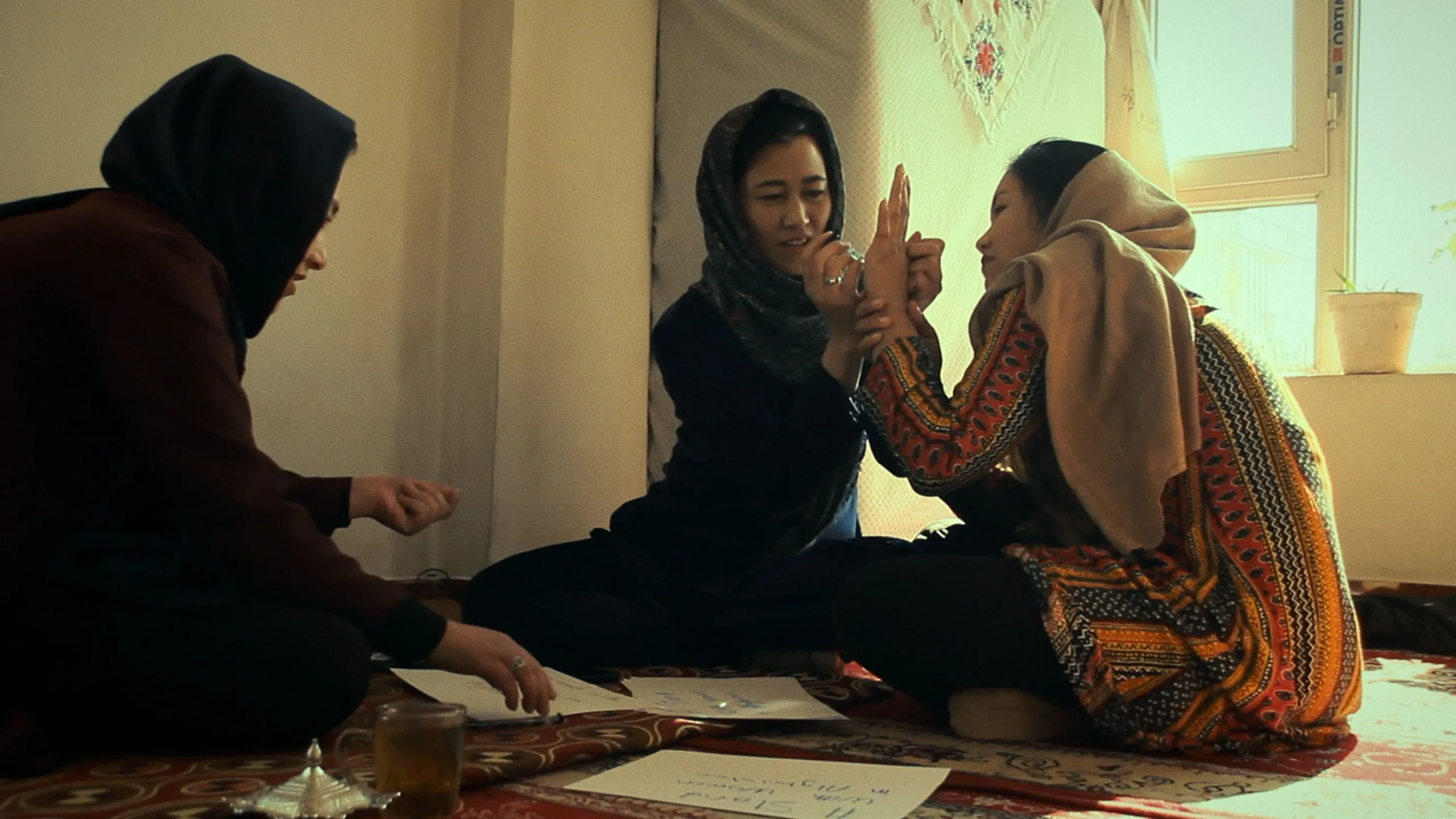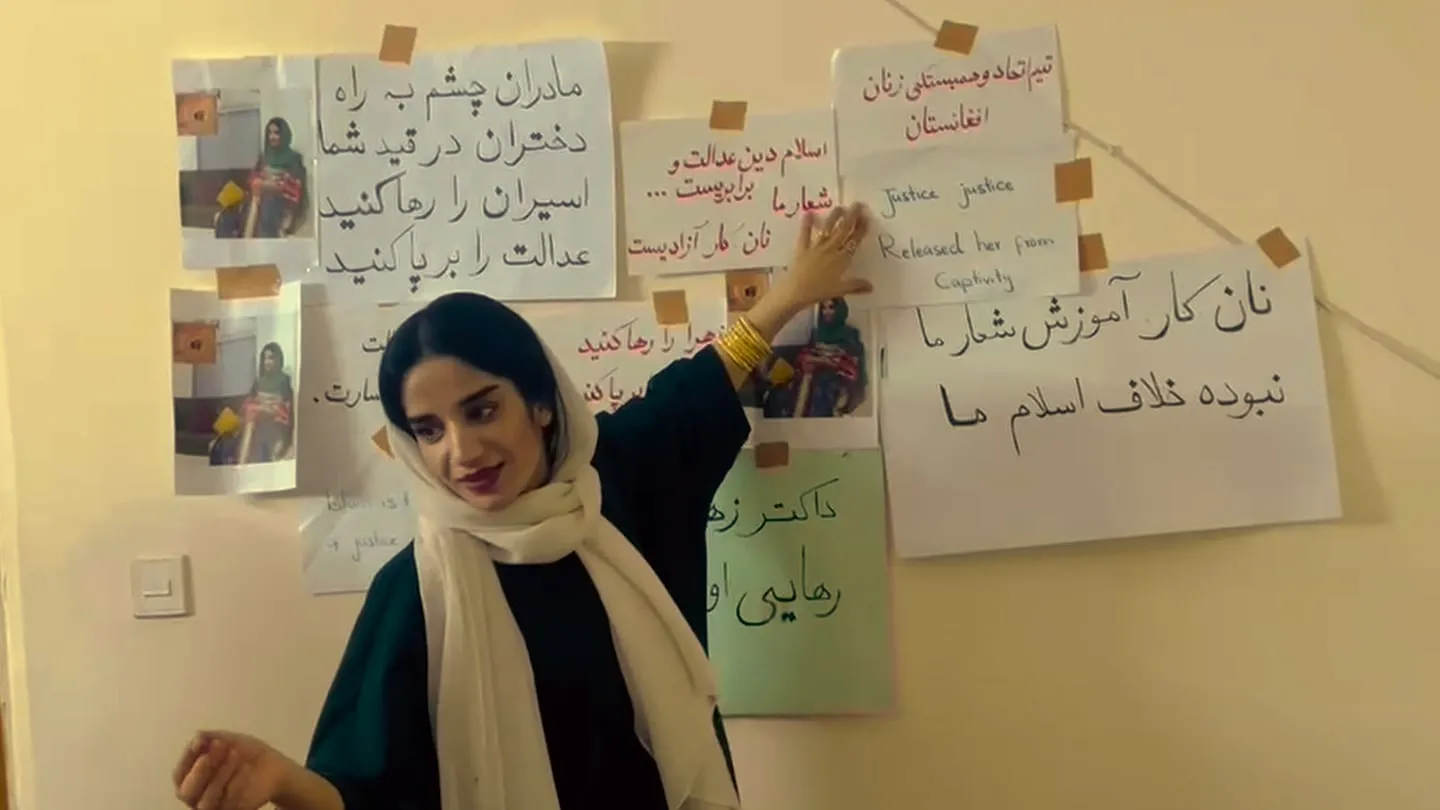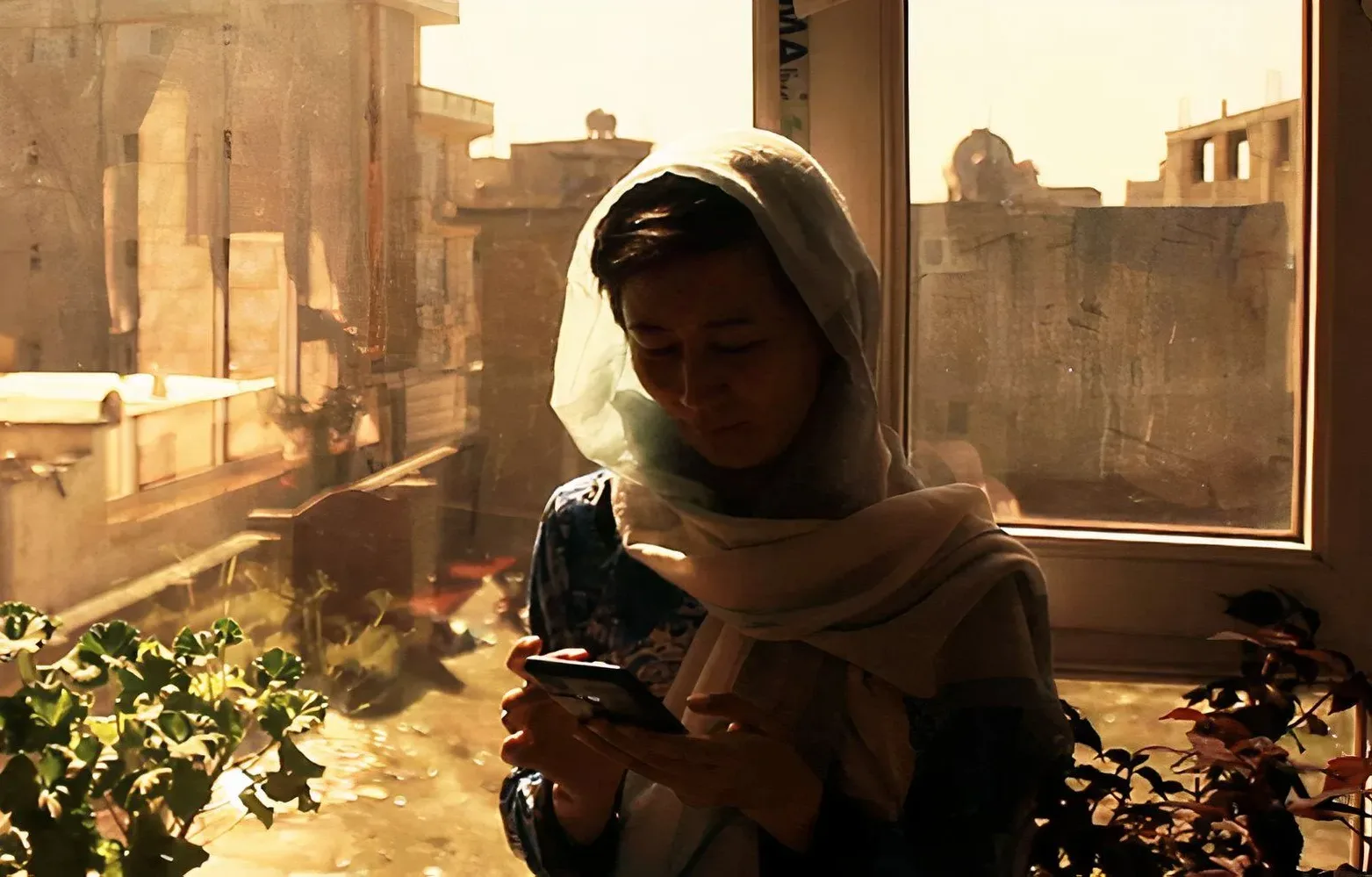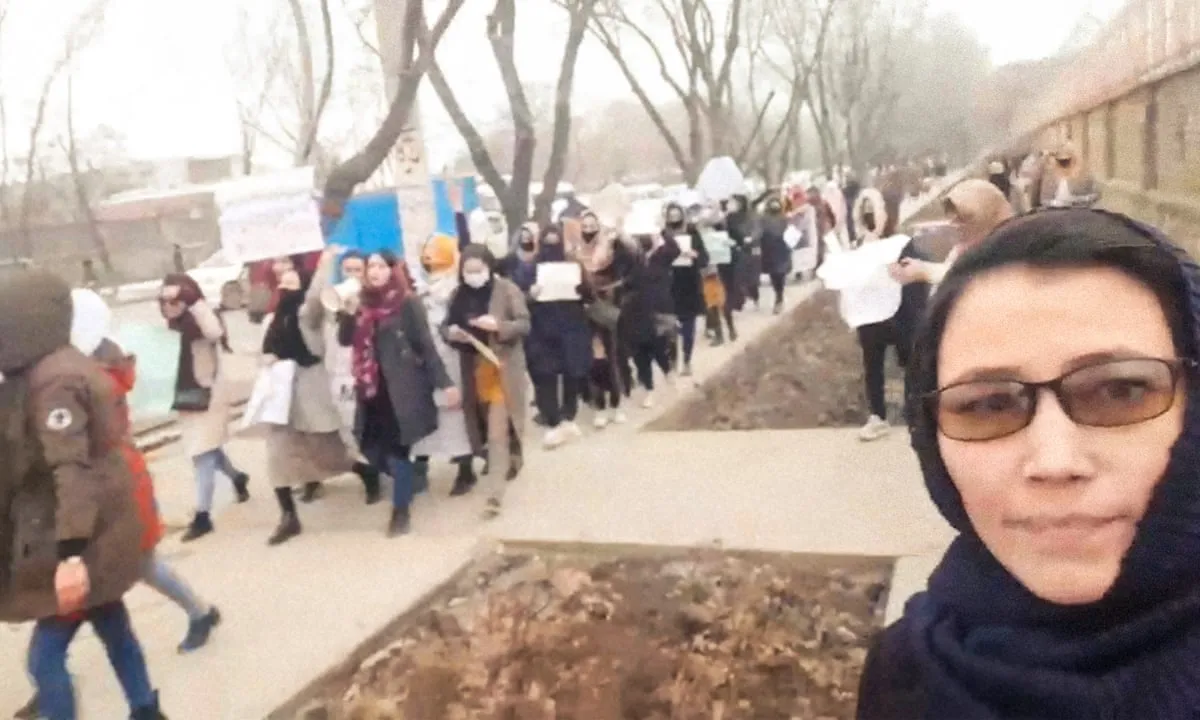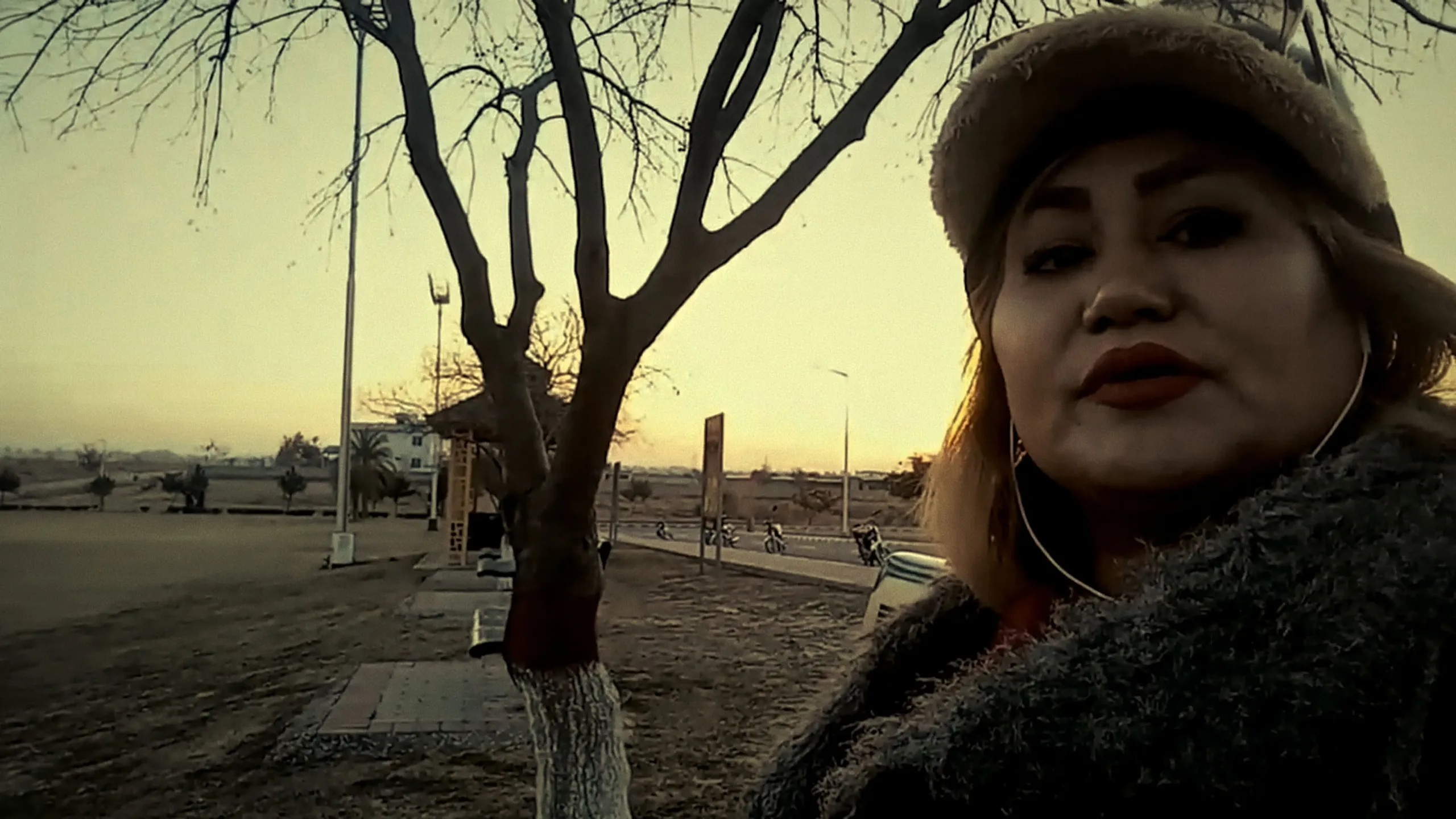In her harrowing documentary “Bread and Roses,” Afghan filmmaker Sahra Mani depicts a watershed moment in her country’s history, capturing the devastating impact of the Taliban’s return to power in 2021. Produced by Jennifer Lawrence’s Excellent Cadaver Pictures, the film provides an intimate, ground-level look at how women’s lives were profoundly affected overnight when the Taliban took control of Kabul.
This film is more than just a historical artifact; it is a remarkable demonstration of human perseverance. Mani explores the personal cost of institutional persecution through the stories of three outstanding women: Zahra, a dentist; Taranom, an activist; and Sharifa, a former government official. The documentary goes beyond ordinary reporting, telling a genuine, unedited story of women battling to keep their dignity, rights, and hope in the face of overwhelming adversity.
“Bread and Roses” is more than just about loss; it celebrates resistance. Mani builds a gripping story by allowing these women to share their stories using personal video diaries and on-the-ground footage, challenging viewers to acknowledge the continuous struggle for women’s rights in Afghanistan. The film is both an urgent warning and an inspiring cry to action, revealing the unshakable spirit of women facing a dictatorship that attempts to eradicate their very existence.
Shattered Freedoms: The Unraveling of Women’s Rights in Afghanistan
Afghanistan’s road toward women’s rights is a complicated tapestry of development and regress. Surprisingly, Afghan women were granted voting rights in 1919, a full year before women in the United States. This historical reality debunks the myth that women in Afghanistan have always faced oppression.
Throughout the twentieth century, women made significant social progress, particularly in urban centers like Kabul, where they worked professionally, pursued education, and actively engaged in society.
The major transition occurred in August 2021, when the Taliban quickly seized power following the US troop withdrawal. This evacuation, arranged under the Trump administration and carried out by President Biden, produced a power vacuum, which the Taliban exploited with astonishing precision. Within months, they undid decades of hard-won progress, launching a systematic campaign of tyranny against women and girls.
The results were swift and devastating. Schools are closed, and girls in grades six and up are barred from attending school. Professional women were dispossessed of their careers; doctors, teachers, dentists, and government professionals were all suddenly unemployed and confined to their homes. The Taliban imposed oppressive restrictions on women, including prohibiting them from walking alone in parks, forcing them to wear restricting attire, and effectively placing them under house imprisonment.
These changes were more than just bureaucratic movements; they were a direct assault on human dignity. The dictatorship imposed a harsh binary: women were to be either virginal, obedient daughters or dutiful mothers; anything else was regarded as subhuman. Young girls who previously dreamed of careers and independence now face a future limited to housekeeping and arranged marriages.
The world watched as 15 million Afghan women’s lives were drastically altered, their ambitions and potential shattered by a regime that saw them as second-class citizens.
Voices of Resilience: Three Women’s Defiance Against Oppression
Zahra Mohammadi’s life altered overnight. A lively dentist recently engaged to her partner Omid; she saw her carefully crafted professional world disintegrate when the Taliban took power. Her dental office, which was more than just a company but also a valuable community resource, was forced to close. But Zahra refused to be silenced. She transformed her clinic into a revolutionary meeting place, continuing to offer medical care when necessary while serving as a focal point of resistance.
Taranom Seyedi fired with political zeal, but the Taliban’s takeover forced her into an unwelcome exile. After being forced to flee Afghanistan and go to Pakistan, she found herself locked in a safe house, her passionate advocacy reduced to whispered chats and guarded communications. The relocation was terrible; each mile away from her country felt like another layer of her identity was removed. Taranom’s voyage, with no money and few options, testified to survival in the face of overwhelming odds.
Sharifa Movahidzadeh’s metamorphosis was possibly the most subtle and significant. She was formerly a purposeful and empowered government employee suddenly relegated to a housewife under what felt like permanent home detention. The defiance manifested in quiet, powerful moments: standing by the window, face drenched in sunlight, listening to banned music. Each modest deed was a rebellion, a reminder that her soul endured despite external limits.
These three women symbolized something much broader than their own stories. They embodied Afghan women’s collective resistance: a fierce, unyielding spirit that refused to be silenced. Their stories were connected with a common rhythm of grief, hope, and incredible courage. Whether through street rallies, clandestine meetings, or personal acts of rebellion, they fought for a future in which women’s humanity was acknowledged.
Their message was unambiguous: they would not be hushed, controlled, or diminished. In a world determined to push them into the shadows, Zahra, Taranom, and Sharifa remained up, demonstrating that injustice cannot kill the human spirit.
Breaking Chains: Survival, Resistance, and Hope in Taliban-Controlled Afghanistan
The Taliban’s return slashed through Afghan women’s lives like a cruel sword, reducing freedom to a distant memory. Their tyrannical government did more than restrict movement; it systematically undermined human dignity. Overnight, women were reduced to binary categories: “good” women were virgin daughters or obedient moms. At the same time, anyone who challenged this narrative was labeled “sub-human” and denied basic rights.
The limits were stunningly extensive. Schools were closed, professional women were barred from working, and public venues became possible punishment zones. Doctors, teachers, and government officials found themselves imprisoned in their houses. Walking unaccompanied, listening to music, or simply existing alone became acts of radical disobedience.
But resistance pulsed beneath this crushing control. Women face beatings, tear gas, and arrests as a result of street protests that broke out. Their “Work, Bread, and Education” chants resounded across Kabul’s streets, a loud protest against systematic erasure. Their weapons were clandestine behaviors like listening to banned music, maintaining secret communication networks, and keeping their sense of self.
The most significant resistance emerged from small gestures of humanity. Young girls chanting against the Taliban, women risking everything to capture their experiences, and constant whispers of hope symbolized something the dictatorship could not crush: their unbreakable spirit. Their courage was more than survival; it promised future generations that persecution is only transitory, but human resilience is eternal.
Perhaps most powerfully, these women never gave up hope. Even when driven into exile or confined to their houses, they hoped their daughters, perhaps even themselves, would one day run Afghanistan. Their rebellion grew from individual acts to a collective shout, demonstrating that no dictatorship can permanently silence people who refuse to be hushed.
The documentary brilliantly captures this ethos, which is more of a celebration of resilience than a grief of loss. Each frame demonstrates Afghan women’s incredible courage as they transform personal trauma into communal power.
Lens of Liberation: Crafting Truth Through Intimate Filmmaking
Sahra Mani’s “Bread and Roses” approach challenges established documentary conventions. Rather than relying on distanced narration or expert opinion, she allows the women’s genuine, unedited experiences to speak for themselves. Personal video diaries become weapons of truth, with each frame as a strong resistance act.
The film’s visual language is purposely scruffy and personal. Mani breaks the rules of traditional documentary filming, recording reality as it happens – raw, hazardous, and startlingly real. Thunder rumbles in the background, lightning strikes punctuate periods of stress, and Masoud Sekhavat Doust’s score adds a haunting theatrical undertone that heightens the emotional experience.
Filming under Taliban authority required exceptional courage. Every camera clicks every recorded moment, bore possible life-threatening consequences. Journalists and photographers were frequently beaten, and individuals may “disappear” following detention. The women’s video diaries evolved into more than personal records; they were covert messages of survival, capturing a world the regime sought to destroy.
The cinematography highlights the sharp contrast between surface routine and deep dread. Kabul appears beautiful; marketplaces continue to run, children play, and the seasons change from snowy winter to blossoming spring. But beneath this surface, a horrible oppression is taking place. Mani’s lens captures seemingly simple moments – Sharifa standing by a window, sunlight on her face – that transform into powerful acts of rebellion.
Mani trusts her subjects and audience by refusing to use a voice-of-god narrator or bring an external perspective. The end product is a documentary that does not explain but discloses. Each frame is a monument to human endurance, and each moment is a protest against quiet.
Echoes of Resilience: Transforming Pain into Powerful Hope
“Bread and Roses” is more than just a documentary; it’s an emotional thunderbolt that breaks and rebuilds your heart. The film elevates deep misery to something more powerful: unrestrained hope. The stories of Zahra, Taranom, and Sharifa take viewers on a profound emotional journey that alternates between gut-wrenching pain and incredible inspiration.
The most heart-stopping moment occurs when primary school girls voice their opposition, requesting that the Taliban leave. Their little yet powerful voices symbolize genuine, unvarnished hope. These children grasp their situation with a devastating and lovely clarity. Despite dreaming of change, they are aware of their current situation.
Mani’s documentary is both a cry of wrath and a beacon of opportunity. It does more than just expose tyranny; it also celebrates resistance. The film contends that ignoring what is happening in Afghanistan means subjecting half of the population to systematic oblivion. However, more crucially, it demonstrates that no tyranny can forever suppress human dignity.
By focusing on women’s voices and experiences, “Bread and Roses” transcends the confines of film. It’s a forceful cry to global consciousness, demanding we acknowledge the human right to self-determination. Each frame holds a promise: change is possible, resistance endures, and hope cannot be legislated away.
Unbreakable: The Lasting Legacy of Resistance
“Bread and Roses” goes beyond documentary filmmaking. It’s a live tribute to human resilience, depicting a moment when an entire generation of women faced erasure but chose to fight back instead. Sahra Mani’s film becomes more than just a historical record; it serves as a worldwide mirror, reflecting the universal battle for human dignity.
The documentary’s power comes from its unvarnished honesty. It does more than expose tyranny; it also celebrates the incredible fortitude of ordinary women who refuse to be silent. These are not just Afghan stories but about the fundamental human right to dream, exist, and resist.
As the globe grapples with systematic inequalities, “Bread and Roses” is both a warning and a promise. It reminds us that no authority has the power to permanently stifle the human spirit. The Afghan women have spoken, and their message is clear: hope is not a luxury but a fundamental act of revolt.
The Review
Bread and Roses
"Bread and Roses" is a powerful, unforgettable documentary that does more than just show persecution; it also celebrates the unshakable character of Afghan women. Sahra Mani has created a tragic and immensely inspiring film, weaving personal stories of resistance into a stunning worldwide story of hope. By giving voice to Zahra, Taranom, and Sharifa, the documentary illustrates the incredible courage in the face of seemingly insurmountable obstacles. This is more than just a film about grief; it's a monument to human resiliency. Mani's direct shooting style eliminates any boundary between viewers and subjects, resulting in an immersive experience that requires emotional connection and analytical contemplation.
PROS
- Unprecedented intimate access to women's experiences under Taliban rule
- Raw, unfiltered storytelling without external narration
- Powerful personal narratives that humanize the broader political struggle
- Exceptional cinematography capturing both danger and hope
- Highlights individual resistance against systemic oppression
- Provides critical historical documentation
- Emotionally compelling and intellectually rigorous
CONS
- Emotionally challenging content may be difficult for some viewers
- Potential risk to participants' safety revealed through the filming
- Limited global context of the broader geopolitical situation









































